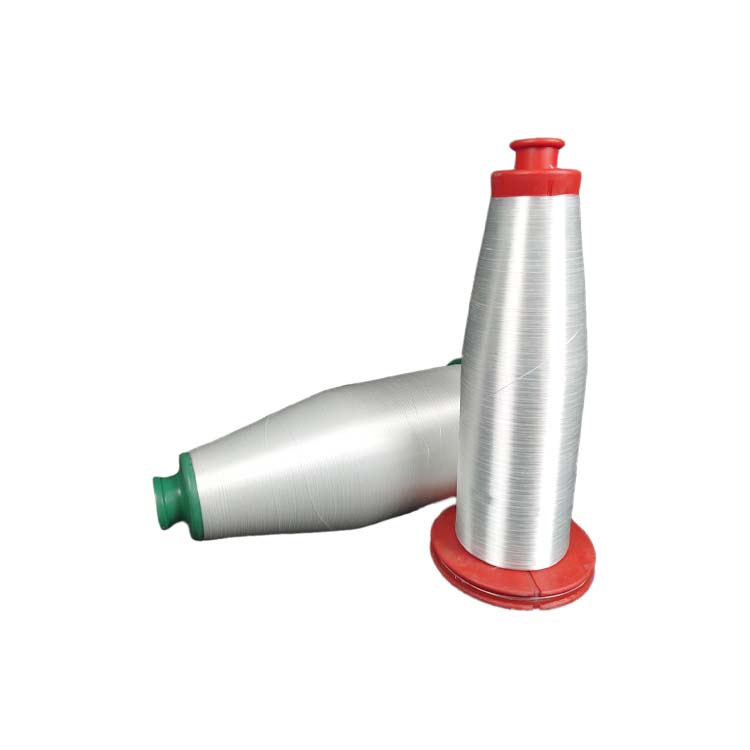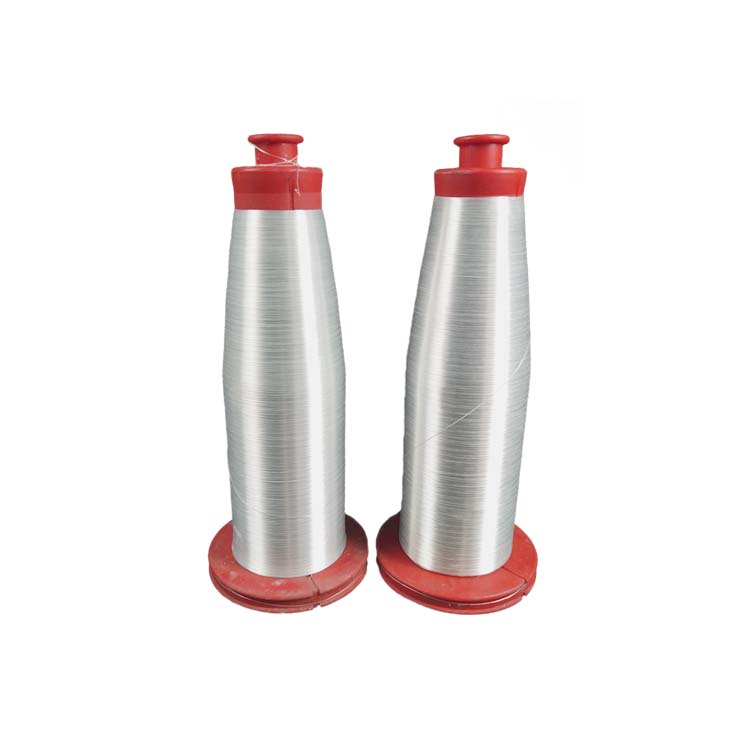
Introduce
Fiberglass yarn is a testament to the ingenuity of modern materials science, blending versatility and durability like no other material. Composed primarily of glass fibers, this innovative material has found its way into countless applications in industries ranging from construction to aerospace. At its core, glass fiber yarn is the product of meticulous engineering, spinning glass into thin, flexible threads that retain the inherent strength of its mineral origin while offering exceptional adaptability.
The composition of fiberglass yarn is the foundation of its exceptional performance. Typically made from silica-based glass, the yarn is formed by extruding molten glass through fine pores, producing threads that can vary in diameter depending on the intended use. When these fibers are spun tightly together, they form a lightweight yet extremely strong yarn. The glass composition ensures resistance to heat, chemicals, and corrosion, making fiberglass yarn suitable for environments where traditional materials cannot.
What is fiberglass yarn?
Texturized fiberglass yarn is a type of material made from fine strands of glass fibers. These fibers are drawn into thin, flexible threads that can be woven or twisted into various forms. The process of creating fiberglass yarn involves melting glass and then extruding it through tiny holes to form continuous filaments. These filaments are then gathered into bundles, which can be spun into yarn.
Here are some key characteristics of fiberglass yarn:
High Strength
Despite being lightweight, fiberglass yarn has high tensile strength, making it durable and able to withstand significant stress without breaking.
Heat Resistance
Fiberglass yarn can withstand high temperatures without degrading, making it suitable for use in environments where heat resistance is essential.
Electrical Insulation
It is an excellent electrical insulator, which is why it is often used in electrical and electronic applications.
Chemical Resistance
Glass yarns is resistant to many chemicals and corrosive substances, which extends its range of applications in various industries.
Non-Flammable
Being made of glass, it is inherently non-flammable, adding a level of safety in applications where fire resistance is crucial.
These properties make fiberglass yarn a versatile and valuable material in a wide range of applications, from construction and manufacturing to electronics and protective clothing.
What is e-glass yarn?
E-glass yarn is a type of fiberglass yarn made from E-glass fibers. E-glass stands for “electrical glass,” which is a specific formulation of glass designed to have excellent electrical insulating properties.
E-glass yarn is composed primarily of alumino-borosilicate glass. This composition gives it a unique combination of properties that make it suitable for various applications. For example, reinforcing material in composite products such as fiberglass-reinforced plastics (FRP). These composites are used in industries like automotive, aerospace, marine, and construction.
What is the thermal conductivity of fiberglass yarn?
The thermal conductivity of fiberglass filament yarn is relatively low, which makes it an effective thermal insulator. The typical thermal conductivity of fiberglass materials, including fiberglass yarn, ranges from approximately 0.035 to 0.040 watts per meter-kelvin (W/m·K). This low thermal conductivity is one of the key reasons fiberglass is widely used for insulation purposes in various applications such as buildings, industrial processes, and appliances.
To put this in perspective, materials with low thermal conductivity are good insulators, as they do not easily conduct heat. In contrast, materials with high thermal conductivity, like metals, are good conductors of heat. The low thermal conductivity of fiberglass yarn helps to prevent the transfer of heat, making it ideal for maintaining temperatures and providing thermal protection.
Is fiberglass yarn a good conductive of heat?
No, fiberglass yarn is not a good conductor of heat. It is actually a good insulator due to its low thermal conductivity, which typically ranges from 0.035 to 0.040 watts per meter-kelvin (W/m·K). This low thermal conductivity means that expanded yarn fiberglass does not easily allow heat to pass through it, making it effective for use in thermal insulation applications. Its insulating properties are leveraged in various industries to maintain temperatures and provide thermal protection.
Is fiberglass yarn a good thermal insulator?
Yes, fiberglass yarn is a good insulating material for several key reasons:
Fiberglass wire yarn has a low thermal conductivity, typically ranging from 0.035 to 0.040 watts per meter-kelvin (W/m·K). This means it does not easily conduct heat, making it effective at preventing heat transfer. Materials with low thermal conductivity are excellent insulators because they maintain temperature differences across them, reducing the loss or gain of heat.
The structure of fiberglass yarn consists of numerous fine glass fibers that create many small air pockets. Air is a poor conductor of heat, and these trapped air pockets enhance the material’s insulating properties. This network of fibers and air pockets effectively slows down the transfer of heat.
Fiberglass yarn is durable and stable at high temperatures. It does not degrade easily when exposed to heat, ensuring long-term insulation performance. Its stability under thermal stress makes it suitable for applications where consistent insulation over time is critical.
Fiberglass yarn 136tex is resistant to moisture and many chemicals. This resistance helps maintain its insulating properties in various environments, including those where other materials might degrade or lose effectiveness due to exposure to moisture or corrosive substances.
Fiberglass yarn is non-flammable, meaning it does not burn. This property adds a layer of safety in insulation applications, particularly in environments where fire resistance is essential. Non-flammable materials help prevent the spread of fire and maintain their insulating properties even in high-heat situations.
Fiber glass yarns can be woven into different forms, such as blankets, boards, and panels, which can be tailored to specific insulation needs. This versatility allows it to be used in a wide range of applications, from building insulation to industrial equipment and appliances.
These properties combine to make fiberglass yarn an exceptional insulating material, used widely in construction, industrial processes, and various other applications where maintaining thermal efficiency and safety is paramount.
What is the use of fiberglass yarn?
Fiberglass yarn is a versatile material used in various applications due to its unique properties. Here are some of its primary uses:
Reinforcement Material
- Composite Materials: Fiberglass Twisted Yarn is commonly used to reinforce composite materials, such as fiberglass-reinforced plastics (FRP), which are used in automotive, aerospace, marine, and construction industries.
- Concrete: It is used to reinforce concrete and other construction materials to enhance their strength and durability.
Textiles and Fabrics
- Industrial Fabrics: Fiberglass yarn is woven into fabrics that are used in industrial applications, including conveyor belts, filtration fabrics, and insulation materials.
- Protective Clothing: Due to its heat-resistant properties, it is used in the manufacture of protective clothing for firefighters, welders, and other professionals exposed to high temperatures.
Electrical Insulation
- Cables and Wiring: Fiberglass yarn is used as an insulating material for electrical cables and wiring, providing thermal and electrical insulation.
- Printed Circuit Boards (PCBs): It is used in the production of PCBs to provide structural support and electrical insulation.
Thermal Insulation
- Insulation Products: Fiberglass yarn is used to manufacture various thermal insulation products, such as blankets, boards, and panels, which are used in buildings, industrial processes, and appliances to retain heat or cold.
Acoustic Insulation
- Soundproofing Materials: It is used in the production of soundproofing materials for buildings and vehicles, helping to reduce noise levels.
Filtration
- Air and Liquid Filters: Fiberglass yarn is used in the manufacture of high-performance air and liquid filters due to its fine fibers and durability.
Fireproofing
Fire Barriers: It is used in the production of fire barriers and fire curtains, providing protection against fire spread in buildings and industrial settings.
These diverse applications highlight the importance of fiberglass yarn in modern industry and technology. Its combination of high strength, heat resistance, electrical insulation, and versatility makes it an essential material in many fields.
In Conclusion
In conclusion, fiberglass yarn and its variants like E-glass yarn play a critical role in a wide array of applications due to their exceptional properties. From high strength and thermal resistance to excellent electrical insulation and chemical durability, these materials enhance the performance and safety of numerous products and structures. Their ability to serve as effective thermal and electrical insulators makes them invaluable in fields ranging from construction to electronics.
Whether it’s the texturized fiberglass yarn used in high-temperature environments, the expanded yarn fiberglass for acoustic insulation, or the specialized fiberglass wire yarn and fiberglass yarn 136tex for industrial applications, the versatility and reliability of fiber glass yarns cannot be overstated.







